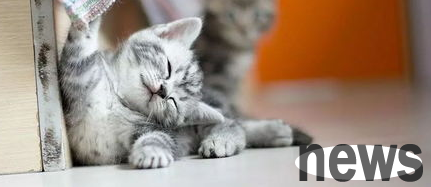What's wrong with cat prolapse? Causes and treatment for cat prolapse! Cat prolapse is also called rectal degeneration, also known as anal valgus. Generally speaking, cats have rectal degeneration closely related to long-term diarrhea and intussusception. Increased abdominal pressure is the main cause of rectal degeneration. In addition, long-term constipation in cats can also lead to anal prolapse. Severe anal prolapse can cause intestinal duct decay, but the systemic symptoms are mild, which may cause depression, loss of appetite or loss of extinction.
1. What is prolapse?
The cat's anus can see columnar drooping swollen objects, which are congested or edema, with dirty surfaces, and stick to hair and soil, and then mucosal ulcers and necrosis. It is often accompanied by increased body temperature, depression and decreased appetite. And frequently perform bowel movements.

2. Why do I prolapse?
Long-term severe diarrhea, weakness, or due to constipation, severe stress during childbirth, and prostatitis. Severe parasites in the intestinal tract, excessive cellulose in the feed, protein and vitamin deficiency, etc., can cause this disease when cats are malnourished.
If the cat has prolapse due to long-term diarrhea and prolapse, it is necessary to have fecal examination, which is likely because of coccidiosis. Coccidiosis is difficult to cure. Generally, doctors will prescribe Happy Brown Sugar and Xinbida for you. Personally, I feel that Happy Brown Sugar is easier to feed.
If the cat prolapses due to excessive anus (such as constipation), the cat is likely to eat foreign objects that are difficult to discharge, so he can't pull it out if he works hard every day. Once a cat cannot pull out a poop for more than three days, please press it with your hands to see if there is any feces accumulated. If the cat screams when pressed, it may be that it has eaten hard foreign objects such as plastic and needles. Please seek medical treatment as soon as possible to take an examination. If you don’t scream and you’re obviously feeling the accumulation of feces, then it may have eaten a softer foreign object like cotton thread. The cotton thread is relatively light, and generally shorter ones can be discharged, but if it is too long and hung at the base of the tongue, you can only take it out with your stomach. Don't be too happy even if the cotton thread is short, because even the cotton thread is like a saw in its small intestine. This is like a hemp rope stuffed into a person's intestines, which can easily scratch the intestinal wall of a cat.
3. Diagnosis of prolapse
It is easy to make a judgment based on the location, appearance and characteristic clinical manifestations of this disease, but it is necessary to consider and judge whether there is inspreading in the intestinal tract. If the diagnosis is ignored and only the intestinal tract will be recurred soon. The method to distinguish simple rectal detachment and inspread rectal detachment is to palpate the early abduction of the intestinal duct, the former is empty and the latter is solid. The second is to palpate the abdominal cavity after the rectum is restored. The former has a soft abdominal cavity and an overall sense of emptiness, while the latter can palpate a solid, inelastic sausage-like intestinal canal.

4. What should I do after I find my anal prolapse?
After being sent to the hospital, the doctor will recommend rinsing with 01% xinjielmite under general anesthesia. Then wrap it with cleaning gauze and gradually send it to the anus. After confirming that the intestinal tube is reduced, the cigarette bag will be sutured. The treatment and prognosis judgment of animals depend on the cause of ejaculation, the degree of ejaculation, and whether it is recurrent ejaculation. For acute rectal prolapse, there is only a small amount of tissue damage, artificial reduction and perianal purse suture fixation are recommended. Non-resetting or severely damaged release will require removal. If rectal ablation occurs repeatedly after manual reduction or removal, colon fixation is required.
Colonization is the establishment of a permanent link between the serosal surface and the abdominal wall of the colon to prevent movement of the posterior colon and rectum. Colon fixation is often used to prevent recurrence of rectal ablation and is very effective. Note: Do not penetrate the colon and intestinal canal during the operation, causing complications.
After rectal reduction, corresponding diseases such as diarrhea and constipation are treated.